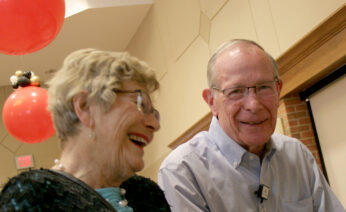
Changing Aging Stereotypes
By: Dr. Roger Landry, MD, MPH
Research repeatedly tells us that how we think about aging affects our health outcomes. If we view aging as being mostly about decline and disability, our health is more likely to suffer. However, if we see aging as a time of growth and potential, we experience better health. We’ve also come to understand that older adults exposed to positive aging messages have more strength, better balance, and tend to have a positive self-image.
Conversely, those with negative outlooks are less likely to exercise, eat well or seek to lower their health risks, and invariably show greater signs of memory loss, have an increased risk for cardiac disease, and are less resilient.
In a recent article published in the Wall Street Journal, “To Age Well, Change How You Feel About Aging,” Becca Levy, an associate professor of epidemiology and psychology at the Yale School of Public Health said, “What people aren’t aware of is that they have the ability to overcome and resist negative stereotypes.”
Michael North, assistant professor of management and organizations at New York University’s Stern School of Business added, “Because there is no PC [politically correct] backlash against it, ageism is often overlooked as a form of prejudice.”
Finding Solutions To Agism Stereotypes
The solution? We need to transform our thinking by substituting positive aging images to counteract the negative. But to do that, we first need to become aware of the varying ways that these negative messages reach us.
A Two-Part Challenge To Changing Stereotypes Of Aging
Step 1: Become aware. For one week, pay special attention to how older adults are portrayed on TV shows, in print ads and birthday cards, in books, and even in music. Keep track of whether these representations are positive or negative. If possible, write them down and keep a running list. Also, notice when someone makes a negative aging comment and make a note of that too. You may be surprised at what you discover …
Step 2: Take action. Refuse to subject yourself to negative views of aging. Make a conscious effort to speak positively, and surround yourself with people who understand that life is about growth and potential. Live Long. Live Well!



